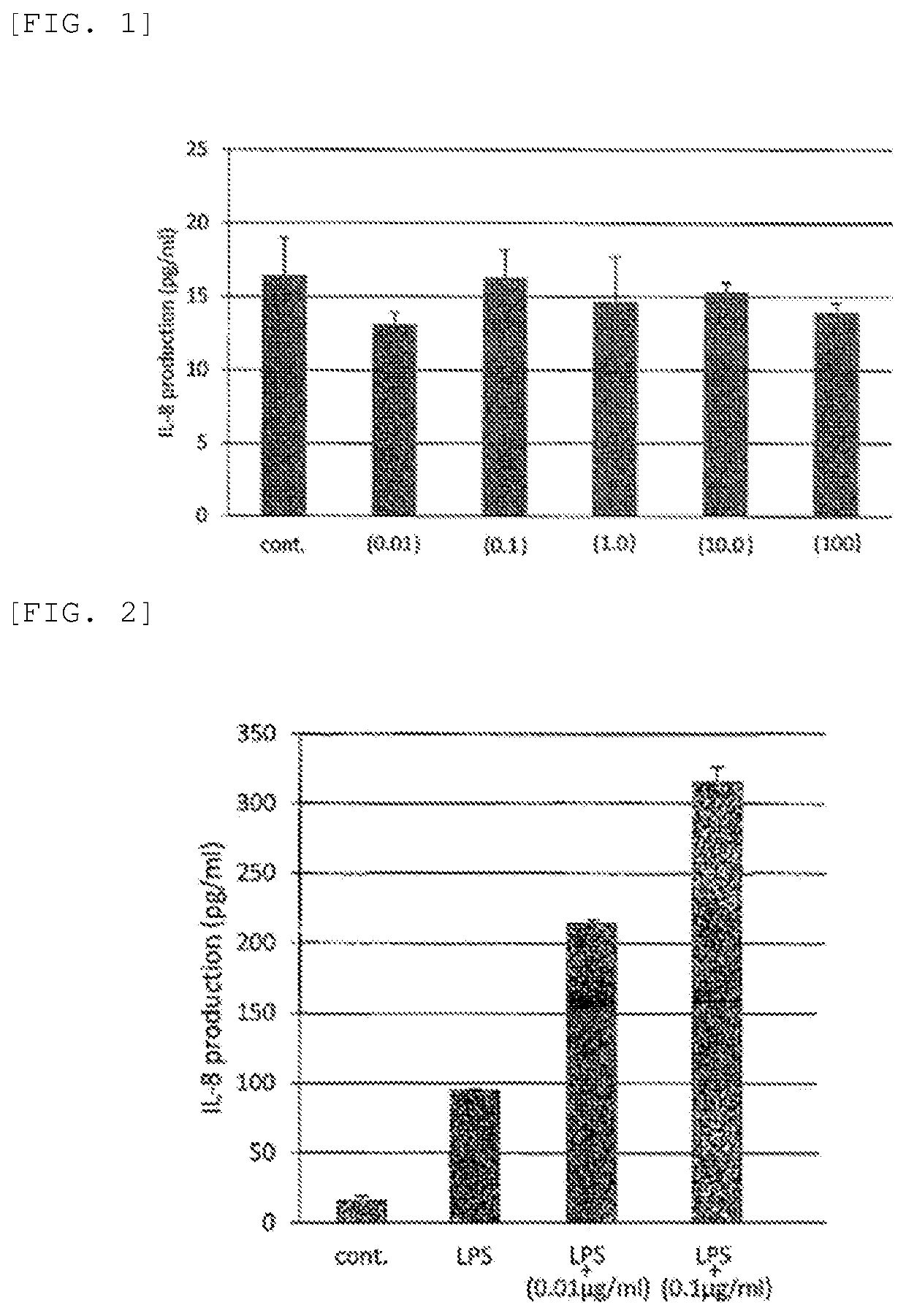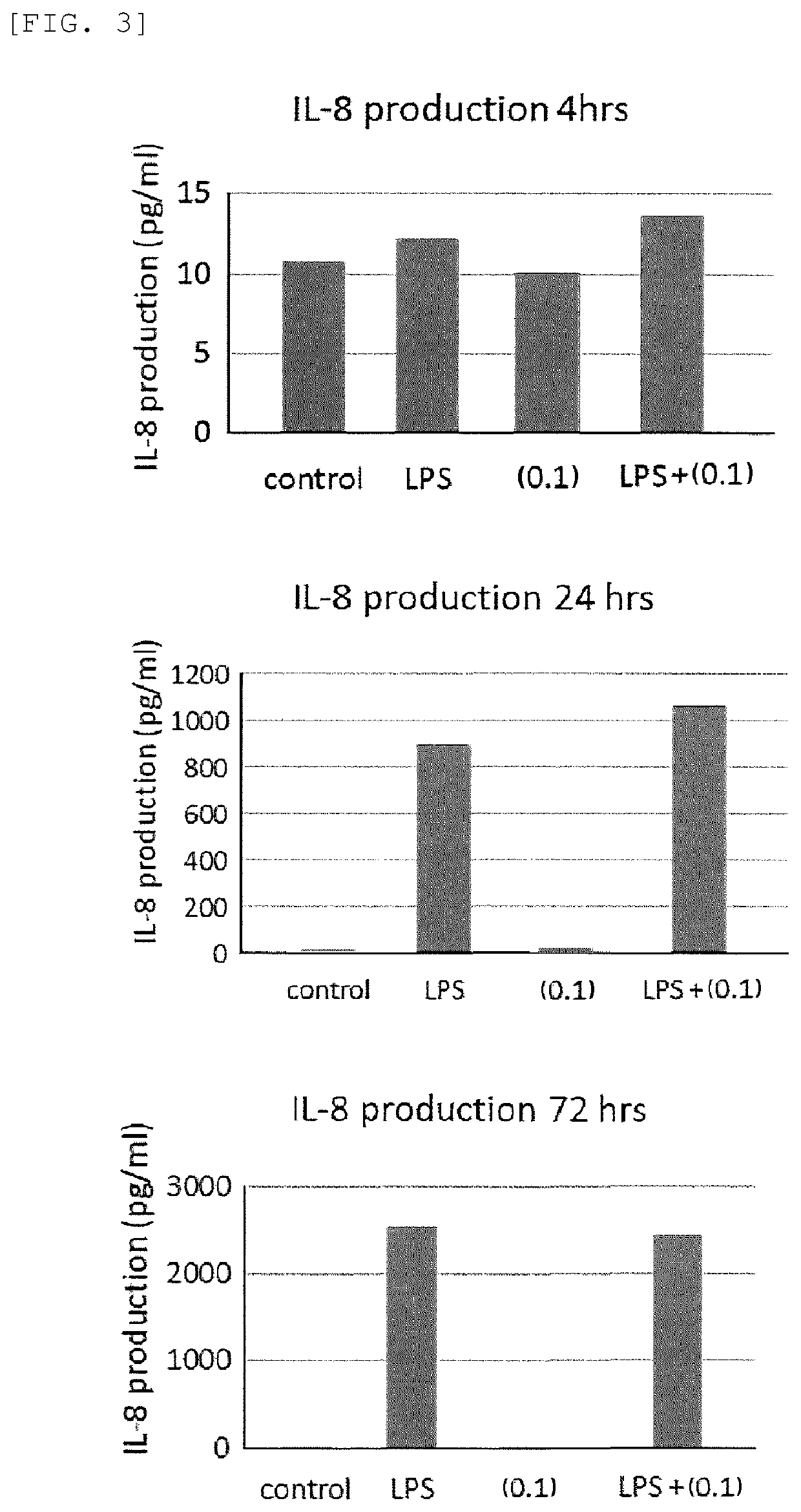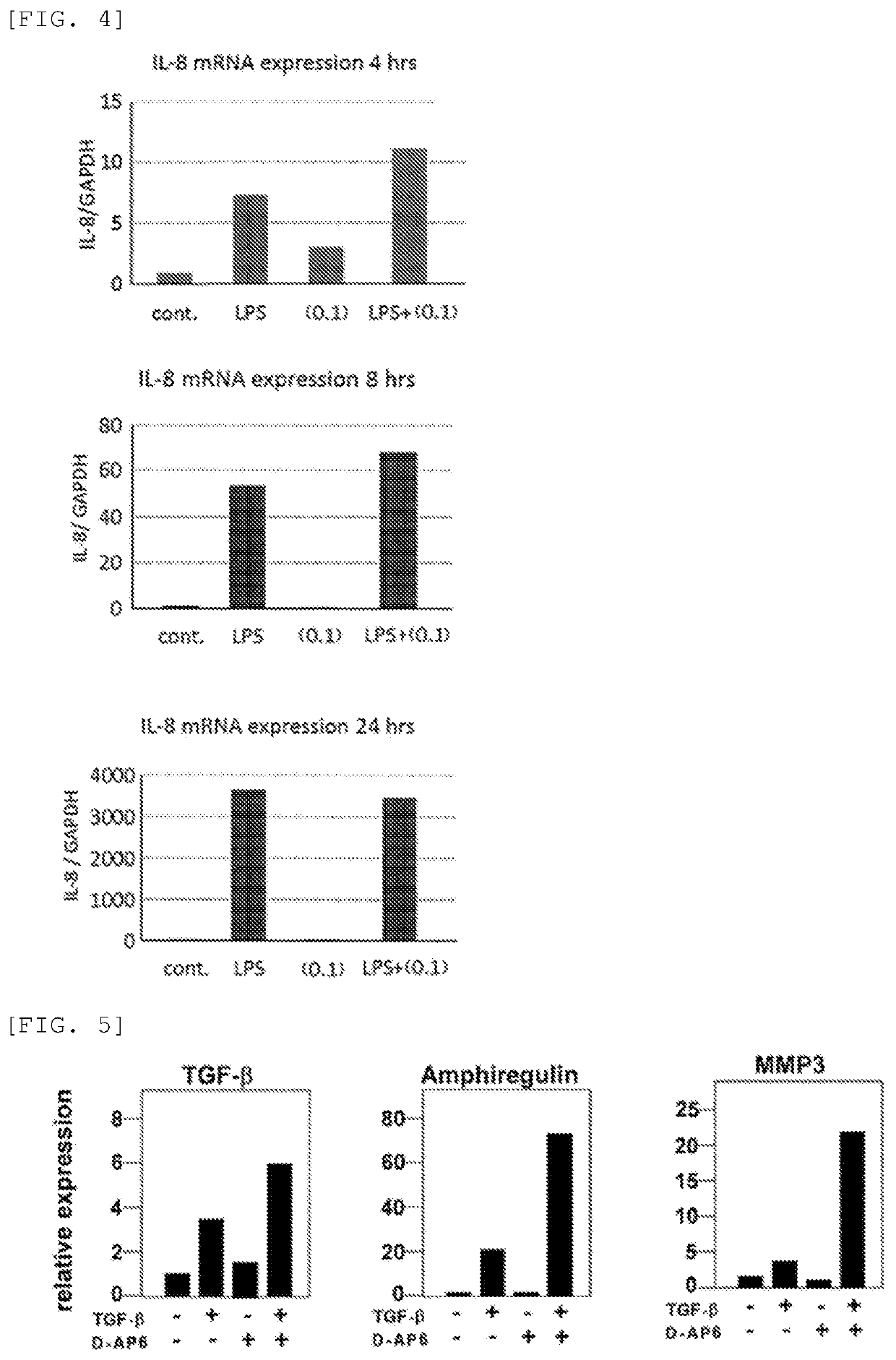Wound healing promoter
a promoter and wound healing technology, applied in the field of pharmaceutical preparations, can solve the problems of reducing affecting the healing effect of wounds, so as to increase the production of il-8, no cytotoxicity, and satisfactorily safe
- Summary
- Abstract
- Description
- Claims
- Application Information
AI Technical Summary
Benefits of technology
Problems solved by technology
Method used
Image
Examples
preparation example 1
Preparation of D-2-amino-6-phosphonohexanoic acid monohydrate
[0128]Triethyl phosphite (5 ml, 29 mmol) was combined with 1,4-dibromobutane (25 g, 116 mmol), the mixture was raised in temperature up to 140° C. with stirring on an oil bath, heated at the same temperature for 30 minutes, and then naturally cooled. When the mixture was cooled down to around 40° C., the pressure was reduced down to about 1 mmHg, and the mixture was heated up to around 120° C. to distill off excess dibromobutane. This gave, as the residue, colorless, odorless, oily diethyl 4-bromobutylphosphonate (7.4 g, yield: 93%).
[0129]Diethyl 4-bromobutylphosphonate (7.4 g, 27 mmol) was combined with toluene (20 mL), diethyl carbonate (10 mL), diethyl acetamidomalonate (4.4 g, 20 mmol), and 60% sodium hydride (1.1 g, 26 mmol) washed with hexane, and the mixture was refluxed at 110° C. After being refluxed for 24 hours, the mixture was cooled down to room temperature, filtered through Celite to remove solids, and the fi...
examples 1 to 5
[0136]A compound represented by Formula (II-2) (trade name GGsTop, supplied by Wako Pure Chemical Industries, Ltd., hereinafter also referred to as “Nahlsgen”) was diluted with water and yielded a pharmaceutical preparation (1) (concentration: 0.01 μg / mL), a pharmaceutical preparation (2) (concentration: 0.1 μg / mL), a pharmaceutical preparation (3) (concentration: 1.0 μg / mL), a pharmaceutical preparation (4) (concentration: 10.0 μg / mL), and a pharmaceutical preparation (5) (concentration: 100 μg / mL). Formula (II-2) is expressed as follows:
[0137]
[0138]Evaluation for Safety
[0139]The pharmaceutical preparations obtained in Examples 1 to 5 were each applied to gingival fibroblasts (clinical sample (healthy gingiva); passage number: 7 to 10 passages) and were evaluated for toxicity (or harmfulness) by measurement of IL-8 production. A specimen using water instead of the pharmaceutical preparations obtained in Examples 1 to 5 was used as a control.
[0140]The results demonstrate that none o...
example 6
[0151]Mouse fetus-derived fibroblasts were spread or inoculated in a 10% FCS-containing Dulbecco's modified Eagle medium (DMEM) and cultured for 24 hours. The 10% FCS-containing DMEM was then removed, and a fresh DMEM devoid of FCS was added, followed by cultivation for further 24 hours. Next, the DMEM containing the cells was combined with Nahlsgen or D-AP6 obtained in Preparation Example 1 to a concentration of 10 μg / mL, cultured for 5 hours, further combined with TGF-β, and cultured for further 5 hours. After the cultivation, RNAs or proteins were recovered, and the quantities of MMP3, MMP9, MMP13, FGF, TGF-β, amphiregulin, PDLIM2, and hyaluronic acid (HSA2) were determined using the real-time PCR technique.
[0152]As a result, the addition of TGF-β alone increased the expression of MMP3, MMP9, MMP13, FGF, TGF-β, amphiregulin, and hyaluronic acid, but the addition of Nahlsgen or D-AP6 alone caused approximately no change in the expression levels. However, the addition of both TGF-β...
PUM
| Property | Measurement | Unit |
|---|---|---|
| time | aaaaa | aaaaa |
| temperature | aaaaa | aaaaa |
| time | aaaaa | aaaaa |
Abstract
Description
Claims
Application Information
 Login to View More
Login to View More - R&D
- Intellectual Property
- Life Sciences
- Materials
- Tech Scout
- Unparalleled Data Quality
- Higher Quality Content
- 60% Fewer Hallucinations
Browse by: Latest US Patents, China's latest patents, Technical Efficacy Thesaurus, Application Domain, Technology Topic, Popular Technical Reports.
© 2025 PatSnap. All rights reserved.Legal|Privacy policy|Modern Slavery Act Transparency Statement|Sitemap|About US| Contact US: help@patsnap.com



